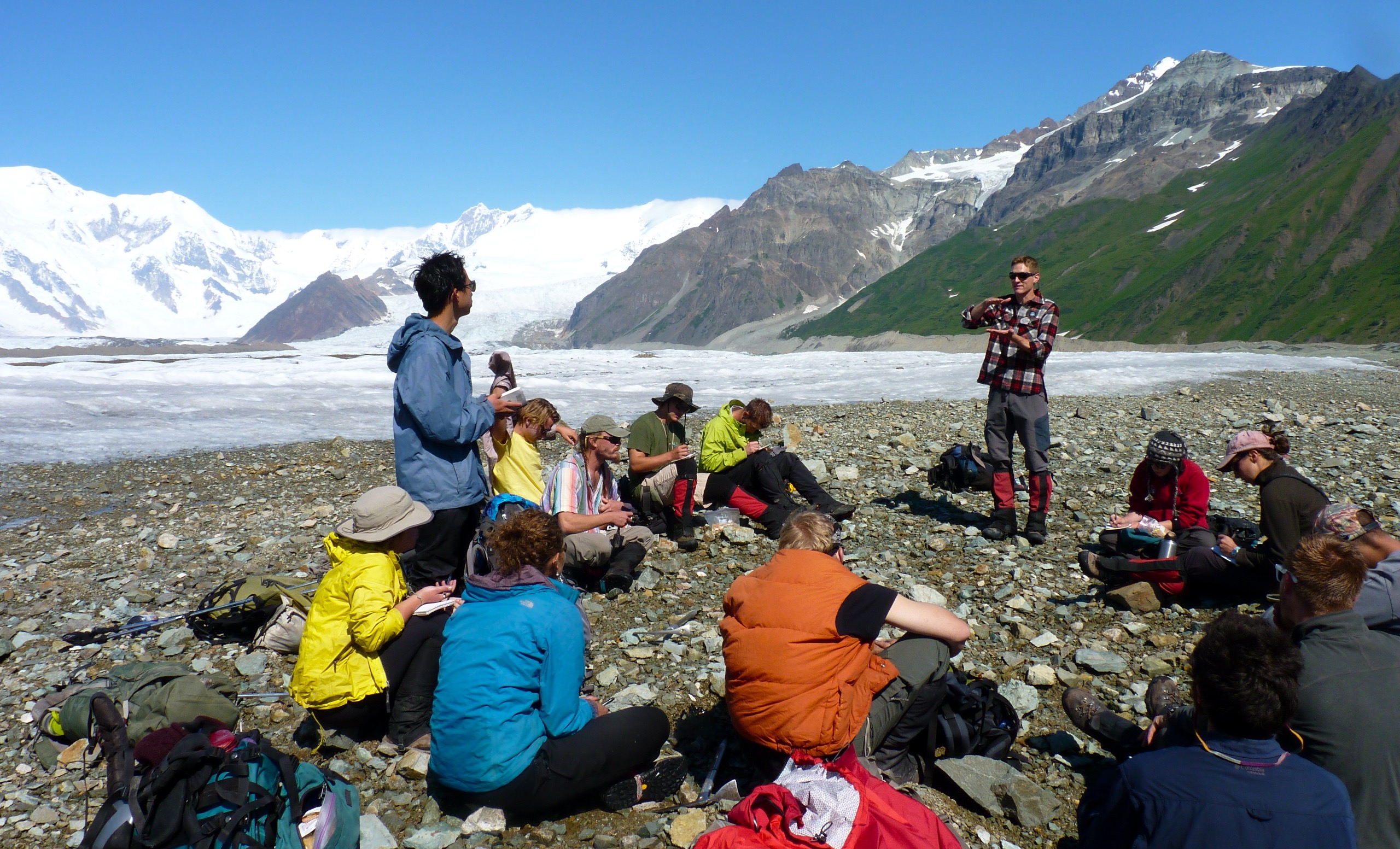Dartmouth is well known for its easy access to the outdoors, offering great hiking, skiing, and opportunities with the Dartmouth Outing Club. Now, a group of alumni from the Wrangell Mountains Center in Chitina, AL and The Evergreen State College in Washington State are taking the love of the outdoors that they cultivated at Dartmouth, and helping students from across the country access remote Alaskan wilderness.
The Wrangell Mountains Field Studies (AWMFS) program combines rigorous academics with expeditions in the trail-less backcountry with time spent living in an off-the-grid community in Wrangell-St. Elias National Park & Preserve, North America’s largest international complex of protected lands. AWMFS offers 16 quarter credits to college students who undertake the interdisciplinary summer term, which offers research opportunities in—among other areas—natural history, life sciences, cultural studies, outdoor education, and the arts.
Aliette Frank ’00, an environmental and evolutionary biology major, is the faculty lead on the program, building the curriculum and working with students over seven weeks to help them perform field work and create projects. In high school, Frank attended a field studies program in Alaska, and even wrote her Dartmouth application essay about being on an almost all-male ropes course trip and how she was able to break social norms in that environment. The outdoor opportunities drew her to Dartmouth.
“I wanted to be near the Appalachian Trail and White Mountains,” the Utah native said. “I also did a biology FSP, and studied mountain gorillas and chimpanzees in Africa as a sophomore. These experiences taught me the value of field work in combination with classroom study.”
Several Dartmouth alumni are also involved in the program, including Tim Bartholomaus ’02, the president of the board of directors for the Wrangell Mountains Center, which hosts the program. Bartholomaus also taught with the program for several years.
“The program provides a liberal arts education, just as Dartmouth does,” he says. “We expect our students to apply scientific, artistic, and literary skills in ways they may not traditionally do. Dartmouth gave me an appreciation for that broad thinking, that goes beyond disciplinary focus. Dartmouth, of course, gave me the foundational training to succeed in my career as a glaciologist too, but the ability to write, communicate, and be curious about a diversity of topics is fundamental to my past and present roles with the Wrangell Mountains Center and the Field Studies program.”
On the administrative side of things, Ken Tabbutt A&S’87 A&S’90 is interim provost at The Evergreen State College. “My time at Dartmouth reinforced the value of field study. When I was at Dartmouth all of the earth sciences faculty emphasized the importance of being in the field,” he says. “Field studies is an integral part of my teaching and that is why I was very supportive of partnering with the program—field studies in a spectacular and remote setting is the strength of this program.”
By opening the Alaska wilderness to adventurous students, the alumni working with the Alaska Wrangell Mountains Field Studies program are continuing in Dartmouth’s long tradition of environmental stewardship and love for the outdoors. Hopeful that Dartmouth students will be among those on the program in the years to come, Frank says, “There’s a heartfelt feeling of there being so little humanity around, and so much we can do for places like this. It’s unique to feel that expanse of wildness around you.”

